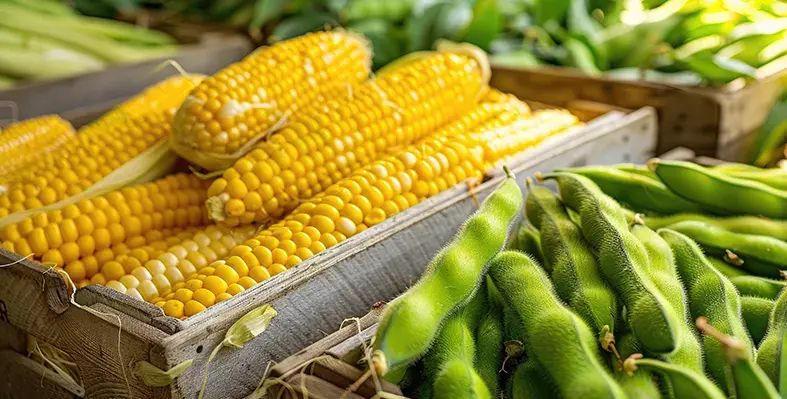Rwandan farmers and the private sector collaborated to improve the maize and soybean value chains for over 4,000 smallholder farmers
This partnership seeks to overcome key challenges such as low yields, limited access to quality seeds, and a lack of market opportunities, which are common among smallholder farmers in rural Rwanda.
The initiative is part of a broader effort to combat food insecurity and enhance the livelihoods of farmers across the country. By working together, farmers and private sector organisations aim to create a more efficient and sustainable agricultural value chain. The project addresses multiple aspects of the farming process, from better input supplies to improving market access. A key focus is providing farmers with high-quality seeds, offering extension services, and supporting better post-harvest handling practices.
Private sector partners, including seed companies, agribusinesses, and processors, play a pivotal role in this initiative. They are helping smallholders gain access to certified seeds, fertilizers, and modern farming practices. Furthermore, the project aims to enhance storage facilities and processing units, which are crucial for reducing post-harvest losses and ensuring that harvested crops are efficiently stored and processed.
The project also puts a strong emphasis on training and building capacity among farmers. Field agents and extension workers are being deployed to offer support on the latest agricultural practices, pest management techniques, and sustainable farming methods. This guidance is intended to help farmers increase their yields and improve the quality of their crops, making them more competitive in the market.
One of the most significant aspects of the partnership is improving market access for smallholder farmers. By connecting farmers with local and regional markets, the initiative ensures fair pricing for their produce, while also providing agribusinesses with a steady supply of quality maize and soybeans. This greater market access helps farmers bypass middlemen and capture a larger share of the profits.
Ultimately, this collaboration between farmers and the private sector offers a comprehensive approach to improving Rwanda's agricultural value chains. The combined efforts are set to enhance food security, increase incomes for smallholder farmers, and promote more sustainable farming practices. The long-term impact of this initiative is expected to play a crucial role in Rwanda’s agricultural growth and broader economic development.





